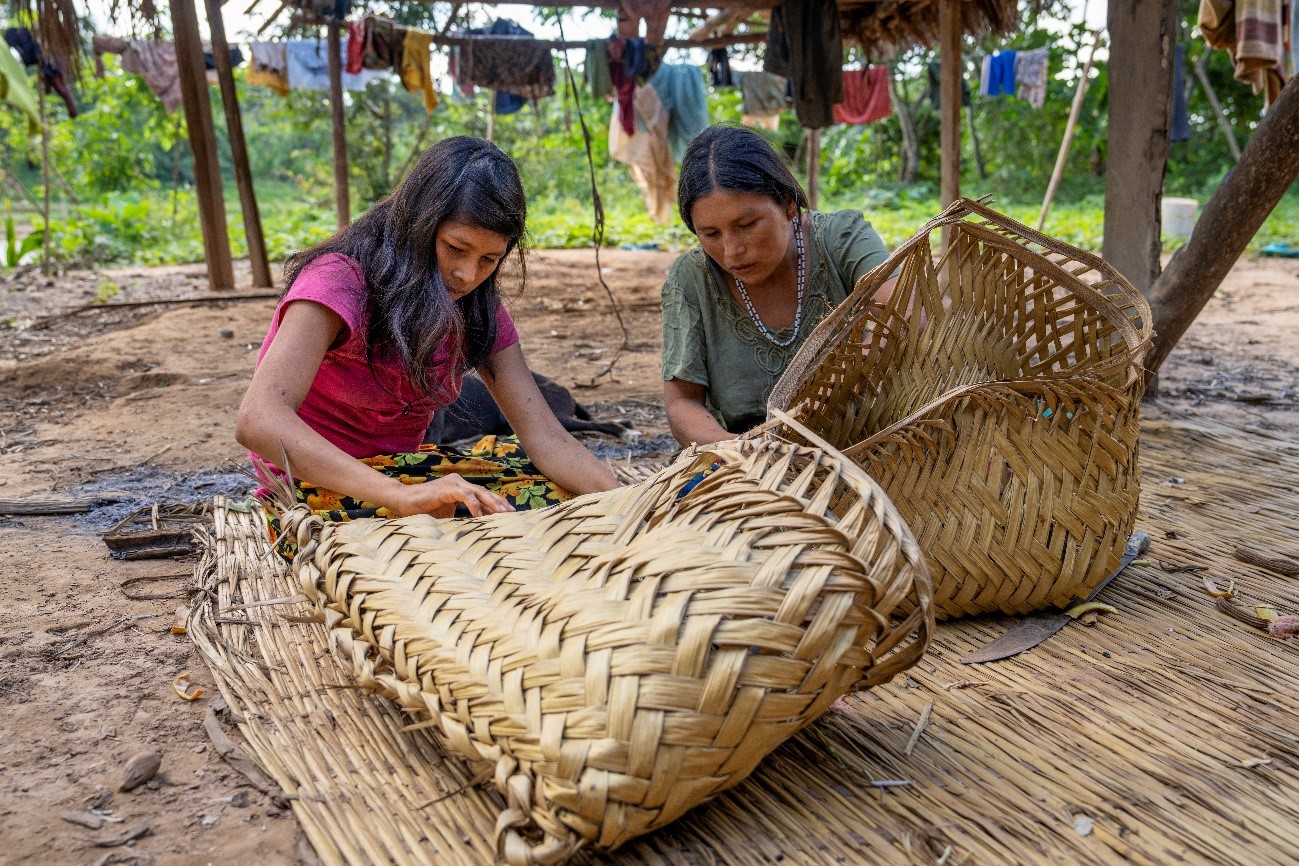Indigenous Peoples play an indisputable and critical role in the conservation of the planet's biodiversity. Their lands and livelihoods sustain life in myriad forms. However, a scientific study by researchers at the ICTA-UAB published in Nature concludes that this vital activity can be misrepresented and misunderstood.

A recent study questions the scientific validity of the long-repeated claim that "80% of the world's biodiversity is found in Indigenous Peoples' territories." Work conducted by researchers at the Institute of Environmental Science and Technology at the Universitat Autònoma de Barcelona (ICTA-UAB), in collaboration with a broad group of researchers, practitioners and Indigenous Peoples' representatives, questions the basis of such a claim. The study presents empirical evidence to show that the claim is not well-founded, and that the true extent of the contribution of Indigenous Peoples cannot be so easily quantified.
The research, published in the scientific journal Nature, advises against the scientific community using the figure of 80% and those supporting Indigenous Peoples' rights in biodiversity conservation. The figure oversimplifies the complex relationship between Indigenous Peoples and biodiversity. The need to correct this erroneous figure arises from concern about the increasing propagation of its use in reputable documents by well-intentioned individuals who genuinely believe in its validity despite its fragile foundation.
The figure is used in forums such as the United Nations or the World Bank and in prestigious scientific journals. It has taken root in public discourse as an established truth. Some Indigenous Peoples' representatives use it skeptically, aware of its shortcomings, while others, fearful of undermining advocacy, have avoided endorsing it. The authors' scientific detective work identified the origins of the claim in misquotations and poorly summarised research.
"There is ample evidence that Indigenous Peoples and their territories are essential to the world's biodiversity, rendering the use of an unsupported statistic such as the '80% figure' unnecessary" states Álvaro Fernández-Llamazares, a scientist at ICTA-UAB and author of numerous articles on the contribution of Indigenous Peoples to global biodiversity maintenance. He underlined the fact that "Recognition in policy circles that Indigenous Peoples play a fundamental role in supporting planetary sustainability will be stronger if based on robust evidence".
One of the problems with the '80% figure', is that it assumes that biodiversity is quantifiable and mappable, which is largely untrue. The authors argue that biodiversity encompasses much more than simply number of species and ecosystems, and includes an understanding of the complex entanglements between humans and the non-human part of nature. "Biological and cultural diversity on ancestral lands and waters of Indigenous Peoples have co-evolved over time, underpinned by reciprocal, kinship, and sacred relationships", adds Joji Cariño, a senior policy advisor for the Forest Peoples Programme. Assigning a definitive numerical value to biodiversity misrepresents the interaction between Indigenous Peoples and biodiversity and devalues the much deeper value that Indigenous Peoples place on their territory. Furthermore, the acceptance of this definitive figure closes the door to future biodiversity research.
"There are important gaps in biodiversity-related knowledge because Indigenous Peoples' values, perspectives and knowledge systems have been largely ignored in conservation science. A truthful, evidence-based approach involving collaboration between Indigenous Peoples and conservation scientists is urgently required", concludes Pernilla Malmer, senior adviser for the Swabia programme at the Stockholm Resilience Centre. Genuinely valuing the cultural knowledge and practices of Indigenous Peoples will lead to a more just and effective approach to preserving the planet's biodiversity.
References:
Fernández-Llamazares Á, Fa JE, Brockington D, Brondízio ES, Cariño J, Corbera E, Farhan Ferrari M, Kobei D, Malmer P, Márquez GYH, Molnár Z, Tugendhat H, Garnett ST (2024) A baseless statistic could harm the Indigenous Peoples it is meant to support. Nature, 633: 32-35. https://www.nature.com/articles/s41467-024-49687-y






